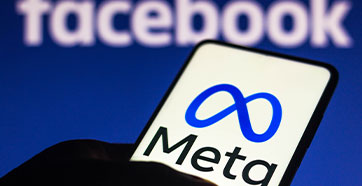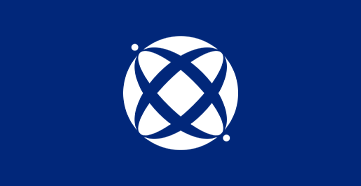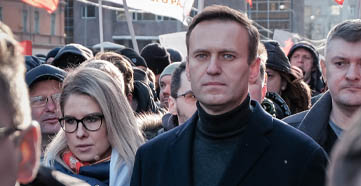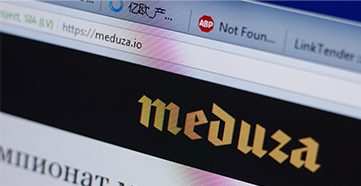|
|
The Italian Communications Authority (AGCOM) has initiated proceedings for online copyright infringement on the application of publishing industry rights holders. The applicants claimed that public channels on the instant messaging platform illegally made thousands of journalistic and literary works from their catalogues available for downloading. AGCOM’s moral persuasion proved pertinent, as Telegram spontaneously removed them. Most recently, emergency legislation has introduced new provisions expanding A
Also, it will address how sports events´ owners and producers are dealing with “active” fans who want to choose what, when and how to watch and how much the new players - Facebook, Amazon, Netflix, Google, Tik Tok, Kwai and other digital media – are willing to pay for sports content and how will their payback be.
IBA Annual Conference Miami 2022
Dec 11, 2020
In early October, tech giant Google announced it had set aside over $1bn to pay media outlets to display curated content on its news apps, initially as part of a three-year programme. Google will pay publishers it chooses on a market-by-market basis to provide blurbs for the company’s Google News Showcase app (‘Showcase’) and to give readers free access to certain paywalled articles.
Second, many jurisdictions have moved to force digital platforms like Google and Facebook to compensate news organisations for the use of their content.
IBA Annual Conference Miami 2022
Jun 10, 2020
As a third of the world’s population is currently ‘unbanked’, tech companies race to establish an online payment system that’s fit for purpose. Global Insight considers Facebook’s stablecoin project, Libra, and whether regulatory barriers might tip the balance in favour of international competitors.
This topic explores the growing legal complexities surrounding the prosecution of owners and issuers of encrypted chat messenger services, with a focus on recent high-profile cases, such a EncroChat and Telegram. It will examine the balance between privacy, security and law enforcement, and discuss the implications of these prosecutions for service providers, users and regulatory frameworks.
27th Annual Transnational Crime Conference
Nov 24, 2021
Global Insight explores the complex relationship between the tech giant’s services, its users and the concept of online harm.
Marilu Capparelli is one of the managing directors of the EMEA Google Legal Department, she leads an international team of lawyers located in different countries and is also leading a copyright litigation strategy area in EU. Marilu is an Italian qualified lawyer with experience in major international law firms, at the Court of Justice of the European Union and as an in-house counsel. Before joining Google, she was Head of Legal and Government Affairs at eBay Inc, Skype and Paypal.
Annual IBA Employment and Diversity Law Conference 2024
Sep 23, 2020
IBA Global Insight Oct/Nov 2020: The tech giant has responded to criticism that it spreads fake news and misinformation by appointing the great and the good to its Oversight Board. Global Insight assesses the implications and chances of success.
Let’s say a client, a lawyer or a law firm has been defamed on Twitter, Facebook, or Instagram by a government official. Or by a former customer or client.
IBA Annual Litigation Forum: Litigation in the digital era - challenges and opportunities
May 11, 2018
Following Donald Trump’s shock victory in the 2016 US election, Russian interference has become a major focus. Special counsel Robert Mueller has already indicted 13 Russian nationals and three Russian entities for allegedly meddling in the election
How do AWS, Google, and Microsoft deal with issues like choice of law and forum, liability, service levels, termination, and more?
IBA Annual Conference Miami 2022
Mar 29, 2023
Facebook’s parent company Meta has been requested by the Italian tax authorities to pay EUR 870 million (USD 925 million) in unpaid VAT sales tax from 2015 to 2021. Based on information provided by an Italian newspaper, the Italian tax authorities seem to be arguing that Facebook membership is granted upon a consideration in kind.
Jun 12, 2024
The new Foreign State Immunity Law 2023 of the People’s Republic of China came into force on 1 January 2024. This shifts the country (as well as its special administrative regions, Hong Kong and Macau) away from absolute state immunity to restrictive state immunity, bringing it more in line with the relatively prevalent practice among the international community. This article discusses the status of state immunity in public international law, analyses the new law’s provisions and examines practical challenges that will be faced by those seeking to utilise this law to enforce judgments or awards against foreign states and state entities, and the new law’s innovations that go beyond the United Nations Convention on Jurisdictional Immunities of States and Their Property of 2004 and the UK State Immunity Act 1978.
IBA Annual Conference Paris 2023

Jul 08, 2025
Mediation is on the rise internationally as a means to settle disputes in a cost-effective manner. Chinese parties appear to be increasingly interested in mediation as an option. This article examines the evolving landscape of mediation in China and internationally. It considers how mediation for Chinese parties is evolving and whether mediation is a good option for Chinese parties in cross-border disputes. Commercial mediation has seen remarkable growth, bolstered by a supportive PRC judicial system and legislative initiatives encouraging parties to find harmonious ways to resolve disputes. The article analyses the three primary types of mediation in China: people’s mediation, administrative mediation, and commercial mediation. It also looks at mediation rules and proceedings in common law jurisdictions, such as Hong Kong, Singapore, and the United States. The article anecdotally considers the cultural elements, emphasising the Chinese parties’ preference for evaluative mediation styles as a reflection of civil law. Through case studies of international disputes involving Chinese and US parties, the article illustrates the practical dynamics of mediation involving Chinese parties and underscores the importance of cultural sensitivity in international mediation. As Chinese parties continue to go global, mediation is emerging as an attractive option for efficient and cost-effective dispute resolution. This analysis assesses whether the promotion of mediation is yielding tangible outcomes and explores the future of mediation involving Chinese and foreign parties.
In 2020 Helle was appointed Co-Chair of The Oversight Board created to help Facebook answer some of the most difficult questions around freedom of expression online; as well as Chairman for the Danish Football Union’s Governance Committee.
IBA Annual Conference Paris 2023
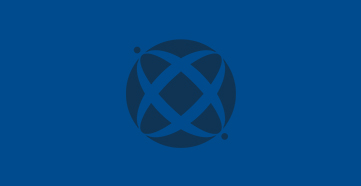
Sep 27, 2023
The rise in popularity of generative artificial intelligence (‘generative AI’) has ignited the discussion on whether junior employees can be replaced by it. Some have gone to the extent of questioning whether professionals, such as lawyers, can also be replaced by generative AI. Is it wise to replace junior employees or lawyers with generative AI? What factors should be considered before deploying generative AI tools in your business? To consider these questions, we first need to understand the basic workings of generative AI and what it can offer. Fundamentally, AI is intelligence that is not biological. The general understanding is that machines will be ascribed with this intelligence. These machines have the ability to interpret, learn from and process external data in a way that is similar to the capabilities of the human mind. Generative AI is a type of AI program that generates content from a data set. It uses deep learning, a type of machine learning system that behaves like a neural network to simulate the functions of a human brain. In other words, it can mimic human intelligence by exhibiting analytical skills to create new content. Not only can generative AI be utilised in chatbot programs to create text, but it can also be used in programs that can create images, sound or videos. This article will consider two major forms of generative AI, in the context of risks to businesses: chatbots using generative pre-trained transformer technology programs; and image generating programs.
Apr 22, 2022
This article discusses the recent SEC case involving PwC and highlights the wider implications for intermediary institutions providing professional services in a tightened regulatory and enforcement regime in China’s banking and financial sector.
Legislators and regulators have intensified their efforts to drive social media platforms towards ‘good behaviour’ in response to concerns about the harms they cause, as Global Insight reports.
The article explains the differences in the Chinese antitrust regulator’s approach to regulating antitrust concerns in the digital market from the approach adopted by regulators in other jurisdictions, including the European Union
May 24, 2021
The international community breathed a collective sigh of relief on 23 April when opposition leader Alexei Navalny ended a 24-day hunger strike in prison after finally receiving medical care. Yet ongoing efforts to suspend his political organisation and restrict other fundamental freedoms threaten to cripple Russia’s already deteriorating human rights situation.
The international community breathed a collective sigh of relief on 23 April when opposition leader Alexei Navalny ended a 24-day hunger strike in prison after finally receiving medical care. Yet ongoing efforts to suspend his political organisation and restrict other fundamental freedoms threaten to cripple Russia’s already deteriorating human rights situation.
Twitter announced in late October it was banning all political advertising, saying the reach of such messages ‘should be earned, not bought’. Google too has opted to disallow political advertisers from targeting voters based on their affiliation and to tighten its ban on ‘demonstrably false claims’.
Facebook meanwhile is facing increasingly fierce criticism for refusing to follow suit, particularly given the UK’s upcoming general election on 12 December.
Feb 04, 2021
The US Department of Justice has launched an antitrust suit against Google, alleging the tech giant used its size to unlawfully maintain its position in online search and advertising. Global Insight assesses the action in the context of previous cases.
May 14, 2020
When Roya TV in Jordan aired a report highlighting the concerns of workers over the economic impact of the country’s Covid-19 curfew, the channel was expecting peak viewership as the public stayed home. But, just hours later, two of its top executives were arrested, part of an emerging trend across the Middle East whereby those questioning the official response to the pandemic are penalized and, on occasion, thrown behind bars.

Sep 26, 2023
The commitment of the European Commission (the ‘Commission’) to create a European space for all digital communications has resulted in a proliferation of legislation (actual and proposed) designed to deal with the many different issues raised by digital communications and services. The governance and enforcement provisions of each of these different pieces of legislation have produced a complex matrix of European Union (‘EU’) institutional arrangements, which reflects both the desire to achieve harmonised conditions of operation across the EU, while at the same time seeking to accommodate the desires of 27 Member States to retain some level of sovereignty over subject-matter as technical and as diverse as that presented in the digital environment. The structuring of the relationships between Commission and Member State bodies or expert bodies, the ‘give and take’ between the institutional actors and the level of legal certainty that can be generated by such multi-player decision-making is likely to pose meaningful logistical and procedural challenges as the different elements of the Commission’s Digital Agenda package come into effect. To better understand the nature of those challenges, we analyse below the governance structures used in the key pillars of the Commission’s Digital Agenda and we seek to draw some preliminary conclusions on the effectiveness of those structures in delivering coherent enforcement on a pan-European level.
Aug 13, 2020
The International Bar Association’s Human Rights Institute (IBAHRI) condemns the detention and use of force against peaceful protesters and journalists in the Republic of Belarus, following the announcement of the initial results of the presidential elections on 9 August 2020. According to the Central Election Commission of Belarus, the elections results indicate that incumbent President Alexander Lukashenko won with 80.23 per cent of votes. Several organisations, including…
Amid the tensions between leading digital platforms and traditional news businesses, the Australian government has produced a novel proposal to use competition law to require designated digital platforms – initially Google and Facebook – to compensate news media businesses for news content. This article explains the origins of the proposed News Media Bargaining Code and developments after the proposal, including reactions from digital platforms.
Mar 29, 2021
Journalism has been reshaped and – in the eyes of some – imperilled by the power of the tech giants in today’s world. Global Insight assesses how journalism can continue to perform its vital role in society as publishers, lawmakers, tech companies and regulators seek to mould its future.
Jul 17, 2025
The past few years have seen the emergence of section 19a of the Act against Restraints of Competition as a central instrument for Germany’s intervention in digital markets, with the German Federal Supreme Court (Bundesgerichtshof or BGH) upholding the German Federal Cartel Office’s (Bundeskartellamt) decisions. This national regime complements the harmonised European Union-wide regime introduced by the Digital Markets Act (DMA). The Bundeskartellamt remains at the forefront of digital platform regulation in Europe, serving as both an enforcer and a testing ground for innovative approaches. This article provides an overview of the evolving regulatory landscape, the interplay between German and EU law and recent enforcement actions against major digital platforms.
The approach currently adopted by competition authorities around the world against so-called big tech hides two main risks, namely the delay in respect of innovation processes that may cause the actions undertaken turn out to be vain and the antitrust over-enforcement. This second feature, particularly, is strictly related to the position that enforcers are prone to adopt on competition law goals, which debate has massively re-emerged in the present context
Jun 01, 2023
The dynamic nature of the digital environment with its lack of transparency and market complexity continues to challenge regulators, often making it difficult to detect issues and take enforcement action to deal with unfair trade practices, anti-competitive conduct and privacy and cybersecurity breaches.
The Australian Government has recently consulted on draft legislation, the Treasury Laws Amendment (News Media and Digital Platforms Mandatory Bargaining Code) Bill 2020 (draft Code). The draft Code requires designated digital platforms, initially only Google and Facebook, to negotiate with Australian media companies on a range of issues, including the question of payment for using a media company’s news content. If the negotiating is unsuccessful, this question of payment may be sent to compulsory arbitra
Oct 12, 2021
In this article we look at the growth of data breach class actions in the UK and Europe following the coming into force of the General Data Protection Regulation (GDPR). We also consider regulatory activity in the data protection field and the links between investigations and recent class actions. Looking to the future we ask whether current trends are likely to continue, highlighting some powerful policy statements made by the English Court of Appeal in support of data breach class actions, and conclude with a few words on litigation funding and its role in facilitating these kinds of cases.
IBA Global Insight April/May 2017 - Reporting from Athens and Lesvos, Global Insight met lawyers on the frontline of Europe’s refugee crisis as they attempt to gain access to those in greatest need of legal assistance.
IBA Global Insight February/March 2018 - Online innovation moves at a rapid pace and legislators can struggle to keep up. Global Insight examines whether competition law provides the necessary tools to keep the major players in check.
|

